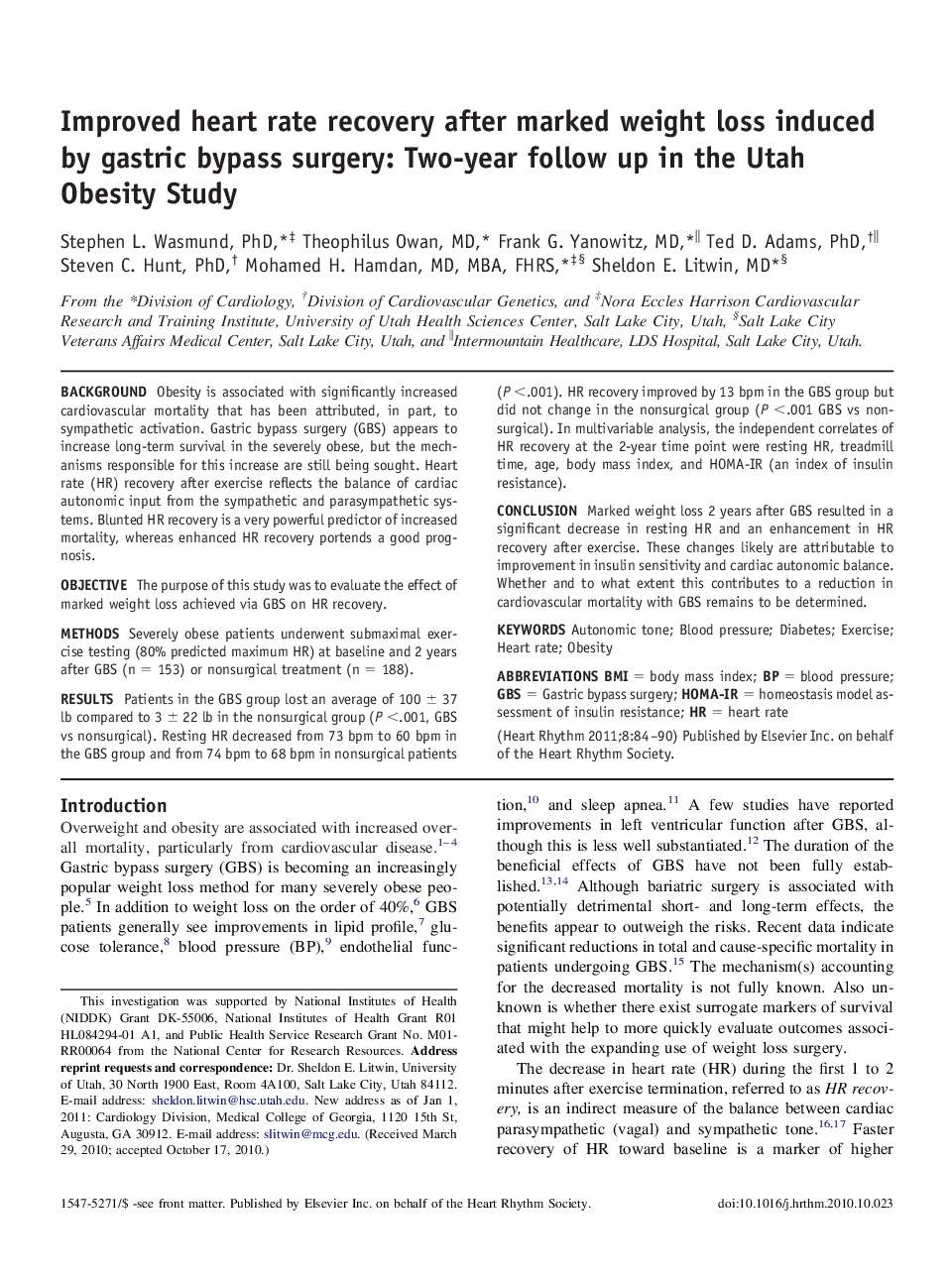| کد مقاله | کد نشریه | سال انتشار | مقاله انگلیسی | نسخه تمام متن |
|---|---|---|---|---|
| 2923836 | 1175887 | 2011 | 7 صفحه PDF | دانلود رایگان |

BackgroundObesity is associated with significantly increased cardiovascular mortality that has been attributed, in part, to sympathetic activation. Gastric bypass surgery (GBS) appears to increase long-term survival in the severely obese, but the mechanisms responsible for this increase are still being sought. Heart rate (HR) recovery after exercise reflects the balance of cardiac autonomic input from the sympathetic and parasympathetic systems. Blunted HR recovery is a very powerful predictor of increased mortality, whereas enhanced HR recovery portends a good prognosis.ObjectiveThe purpose of this study was to evaluate the effect of marked weight loss achieved via GBS on HR recovery.MethodsSeverely obese patients underwent submaximal exercise testing (80% predicted maximum HR) at baseline and 2 years after GBS (n = 153) or nonsurgical treatment (n = 188).ResultsPatients in the GBS group lost an average of 100 ± 37 lb compared to 3 ± 22 lb in the nonsurgical group (P <.001, GBS vs nonsurgical). Resting HR decreased from 73 bpm to 60 bpm in the GBS group and from 74 bpm to 68 bpm in nonsurgical patients (P <.001). HR recovery improved by 13 bpm in the GBS group but did not change in the nonsurgical group (P <.001 GBS vs nonsurgical). In multivariable analysis, the independent correlates of HR recovery at the 2-year time point were resting HR, treadmill time, age, body mass index, and HOMA-IR (an index of insulin resistance).ConclusionMarked weight loss 2 years after GBS resulted in a significant decrease in resting HR and an enhancement in HR recovery after exercise. These changes likely are attributable to improvement in insulin sensitivity and cardiac autonomic balance. Whether and to what extent this contributes to a reduction in cardiovascular mortality with GBS remains to be determined.
Journal: Heart Rhythm - Volume 8, Issue 1, January 2011, Pages 84–90